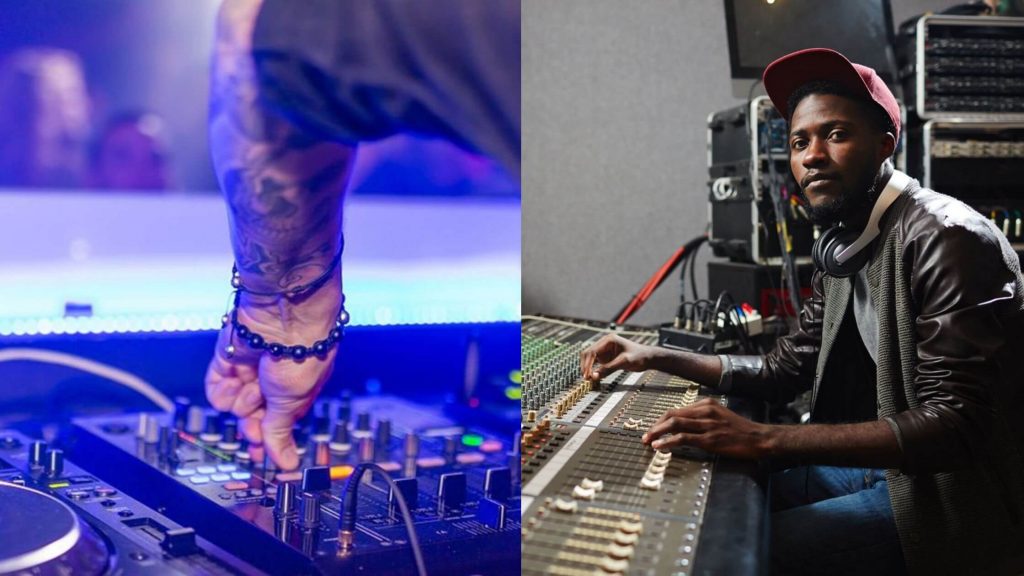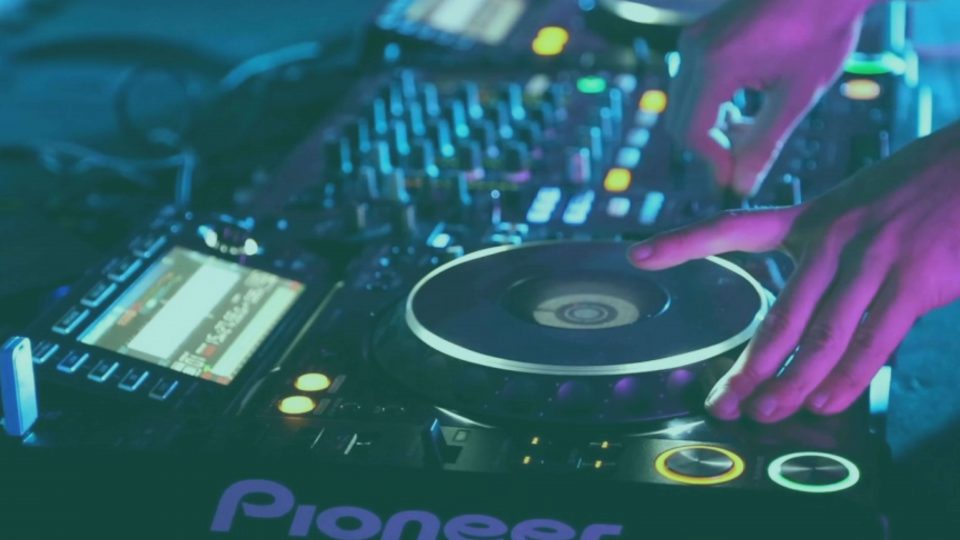What’s the Difference Between a Music Producer and a DJ?
There are two types of producers. A record producer uses a dedicated software to help a recording artist record, mix and master their music. They can also make informed decisions as to where the track may be going and be the project leader, manage the funds for the project, and source the best studio for the needs of the track.
Before we dig in, let’s talk about a crucial distinction. A “record producer” and a “music producer” are two different people that use similar but often different tools for different purposes. We’ve explained this in detail here.
A record producer is often a project leader whereas an electronic music producer is often alone in their studio doing their own thing. A record producer is hired by a recording artist to help make their song the best that it can be. A music producer and bedroom producer is their own project leader, producer and manager. They are their own team.
A DJ, on the other hand, is a live performer using dedicated gear like a controller, CDJs or turntables and creates a rhythmic sequence of pre-made tracks to get people dancing! These tracks can be their own, but DJ’s almost always include tracks from their peers too.
What Does a Music Producer Do?
For the sake of simplicity, a music producer is someone who produces an entire track from start to finish and releases it for themselves or signs it to a label – no one has approached them and asked them to make it for them. A great example here is EDM producers.
Both of the producers I have mentioned, record producers and electronic music producers, need to understand how to use an EQ, compression, delay, reverb, and even synthesizers, and more. Where they differ is how they act in their environment.
So, with that said, a music producer uses equipment and software to produce music.
We’ve all heard of the term “bedroom producer“, right? Well, this is often the starting point for all music producers (especially electronic artists).
What Does a DJ Do?
A DJ (disk jockey) uses equipment and software to perform music to a crowd. They can play the music of a recording artist and record producer, the music of a beatmaker, as well as the music of the electronic music producer.
A DJ needs to understand other people and their tastes. They need to be able to read the room and see whether or not people are enjoying the music they’re playing. If people are dancing, great! The DJ is doing their job. If nobody is dancing, they need to switch the vibe. This information informs their decisions on what music they should be playing.

Different Types of DJ’s
Radio DJ
The first spot is reserved for the most well-known DJ: the radio DJ.
Radio DJs need to know music more than anything else – they need to be experts or something like experts. Not only this, but they need to be entertaining individuals! They talk in between tracks and also introduce each song, and this is why we call them radio personalities!
All we hear is their voice, so their voice needs to be enticing. BBC Radio 1 DJs such as Nick Grimshaw and Annie Mac, who’s now retired from the station, are fantastic examples of entertaining radio presenters.
Years of practice allow them to cater for multiple tastes on any radio station. Coupled with knowing how to talk through a microphone to thousands of people, these guys have a lot of responsibility.
Club DJ
Up next… club DJs.
A club DJ should know how to read a live crowd while mixing tracks together at the same time. When we’re having a great time in the club, our tastes are being catered for. If a DJ is playing for a particular scene (if a Drum & Bass DJ is performing at a D&B night) then the DJ may have pre-prepared the set. This would only be because the set is for a specific crowd… but don’t think that the DJ won’t need to switch things up from time to time!
By making selections on the spot, they can react to the crowd and plan their next selection or two to get the crowd more involved. A club DJ’s focus is usually on finding new music that goes well with their current arsenal and with other new music they’re finding, and the technical skills that allow them to build a mix like matching the speed of the tracks and synchronizing them together in time (beat matching).
Techniques such as looping, adding effects like flanger or reverb, cutting frequencies via filtering, and even scratching, a club DJ often changes the sonic format of songs they’re playing.
The use of things such as effects is kept to a minimum in a lot of scenarios. However, coupled with techniques such as looping… effects are amazing for creating a unique transition from one track to another.
Event DJ
Event DJs are the people we’ve all seen before. They perform weddings, work events, and even birthday parties! Their job is to care for the atmosphere of the party/event. Event DJ’s really need to know how to read a room as they play much more personal events compared to club DJs.
Similar responsibilities also include hyping the crowd up & keeping them entertained, but the event is almost always much more intimate and has a greater duty of care.
Conclusion: A DJ is Not a Producer, but a Producer Can be a DJ
A singular person can and most often do have more than one role.
In electronic music, it’s standard that a producer can also DJ in order to perform their music live.
A record producer can also be a DJ, and very often does perform the music they produce. One of the most notable examples is DJ Kalid… *another one*.
A DJ can always learn to be a producer and a producer has usually learned DJ before becoming a producer. A DJ may get bored of playing other peoples’ music and may want to add their own spice to their sets. The Drum and Bass community have thousands of DJ’s that very often go and learn music production and become Drum and Bass, producers.
A music producer uses equipment and software to produce music. The foundation of any great song is great quality samples.
We at Mixxed understand this, and we use it as our guiding principle to deliver you thousands of inspiring samples. Our catalogue is constantly growing on a daily with countless contributors who believe in our mission singing up.
Our sample arsenal already includes thousands of loops, one-shots and sound effects from top sample labels fit for a range of genres, and you’ll have access to them all for less than $3.
Sign up today to find your sound!
